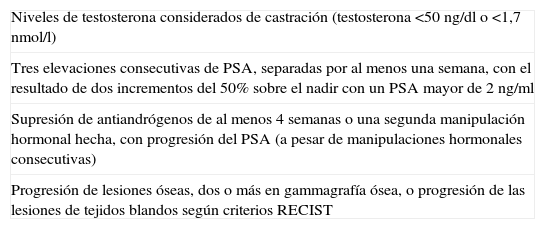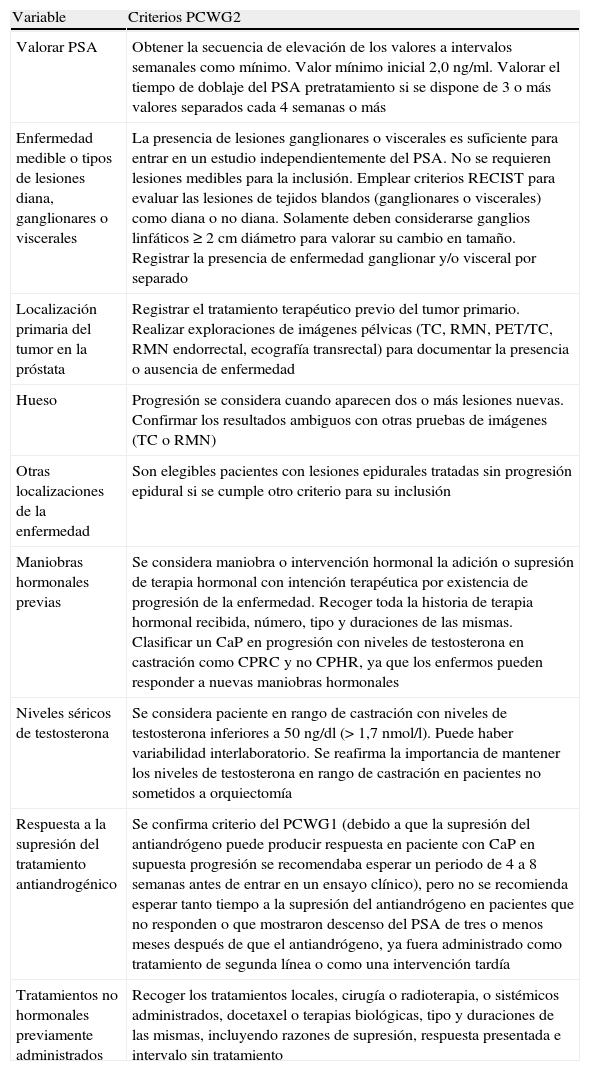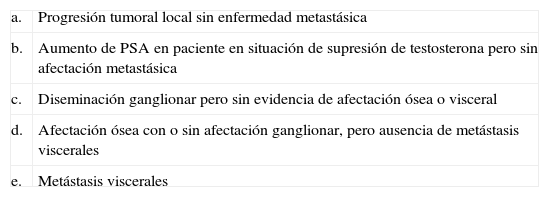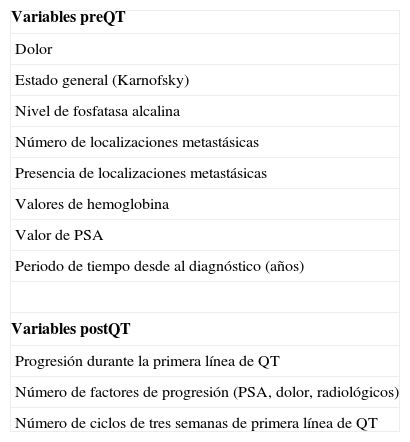El tratamiento hormonal permite un control eficaz de los síntomas relacionados con el cáncer de próstata metastásico; sin embargo, la práctica totalidad de estos pacientes sufrirán progresión de su enfermedad cuando esta se hace resistente a la supresión androgénica. La aparición de nuevos fármacos permite abrir nuevas expectativas en el tratamiento de esta enfermedad.
ObjetivoElaborar un documento de revisión sobre la situación actual del cáncer de próstata resistente a castración y compartir las grandes expectativas que se muestran con los nuevos tratamientos.
Adquisición de la evidenciaReuniones multidisciplinares con la participación de urólogos y oncólogos, donde se pusieron en común el análisis bibliográfico de artículos originales y se definió el contenido del artículo.
Síntesis de la evidenciaTras el fracaso de la hormonoterapia, la quimioterapia con docetaxel supuso un punto de inflexión en el cáncer de próstata resistente a castración, consiguiendo por primera vez beneficio en la supervivencia sobre mitoxantrone y prednisona. La combinación de docetaxel y prednisona es el tratamiento de elección en primera línea. Cuando progresa no hay alternativa clara, aunque nuevos agentes están generando expectativas en el tratamiento de esta enfermedad.
ConclusionesEl horizonte terapéutico del cáncer de próstata resistente a la castración se abre de forma espectacular con la llegada de nuevos fármacos. Por el momento, cabazitaxel y en el futuro próximo abiraterona se han mostrado como fármacos eficaces en el tratamiento de segunda línea tras la progresión a docetaxel, añadiendo más de 2-4 meses de supervivencia y reduciendo un 30-35% el riesgo de muerte.
Hormonal therapy allows effective control of cancer-related symptoms in advanced stages. However, the disease will progress in almost all these metastatic prostate cancer patient until becoming resistant to androgen suppression. The emergence of new drugs will most probably have open up new expectations regarding the treatment of this cancer.
ObjectiveThe aim of the present review has been to provide an overview of the current status of castration-resistant prostate cancer and to share the high expectations created with the new treatments.
Evidence AcquisitionEvidence was obtained from multidisciplinary meetings with the participation of urologists and oncologists, where they pooled the analysis of original articles in the literature and defined the content of the article.
Evidence SynthesisChemotherapy with docetaxel was a turning point in castration-resistant prostate cancer after the failure of hormonal therapy failure. For the first time, it achieved increased survival time in comparison with mitoxantrone and prednisone. Combination therapy with docetaxel and prednisone is the first-line choice treatment. Once the cancer has progressed, there is no clear alternative, although some novel agents have created expectations for the treatment of this type of cancer.
ConclusionsThe range of therapeutic options for castration-resistant prostate cancer has increased dramatically with the arrival of new drugs. At present, cabazitaxel, and in the near future, abiraterone, have been found to be effective drugs in second-line treatment after progression to docetaxel, increasing survival by 2-4 months and reducing risk of death by 30-35%.













